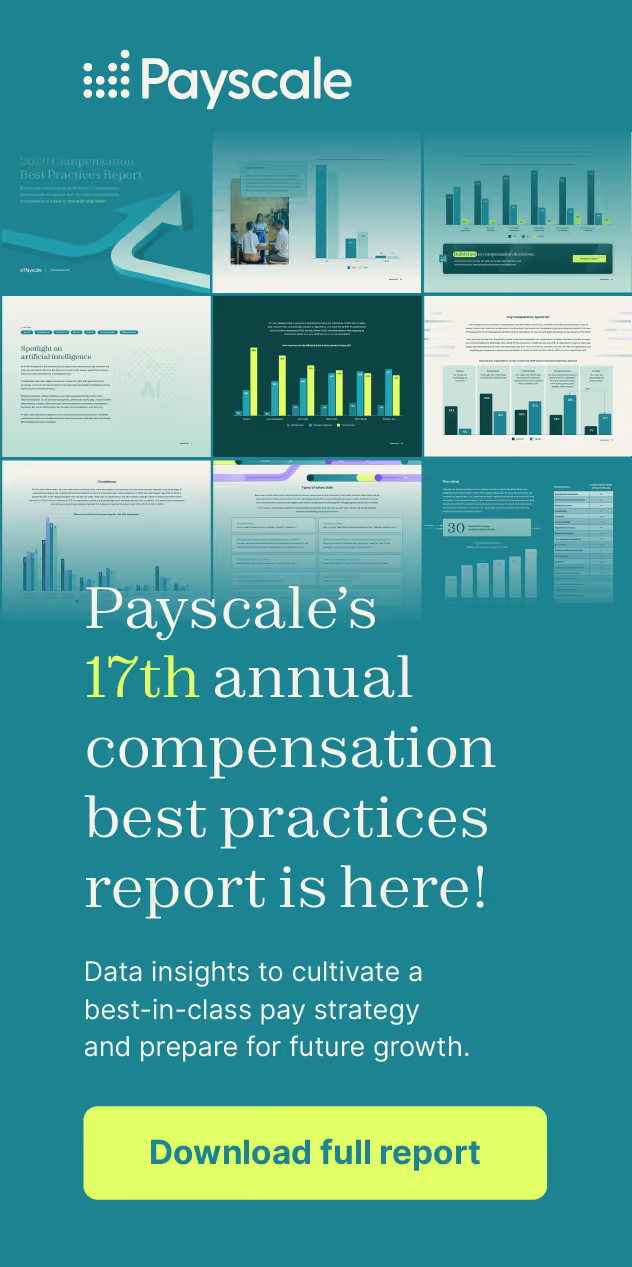Leer versión en españolNovember 20, 2019 is Latina Equal Pay Day. This symbolizes the day when Hispanic women’s earnings catch up to non-Hispanic white men’s earnings from the previous year. It’s a sobering reality that Latina women earn just 54 cents for every dollar a white, non-Hispanic male earns. In other words, Latina women must work nearly 23 months to earn what these men earn in a year. This disparity hurts more than just Latinas. It affects their families and communities, as well as our economy as a whole.
The Event
To commemorate this date, PayScale partnered with Lean In Seattle Chapter to host a networking event and panel discussion. Influential organizations Mercer, T-Mobile, KD Hall Communication, and Projectline sponsored the event. The admirable Laura Espiu, Co-Chapter Lead of Lean In Seattle & Founder of Latinas in Seattle Lean in Circle kicked us off with passion and candor, introducing her mentor and dear friend, Lisa Van Der Lugt. Lisa Van Der Lugt of Washington State Office of Minority & Women’s Business Enterprises was the keynote speaker. Her presentation revealed some unsettling facts. While it’s true that all women face challenges in the workplace, some experience more than others. For example, despite overall wage growth, Hispanic women experienced the greatest decline in wages over the past decade. Additionally, a survey from Leanin Org, Survey Monkey and UnidosUS found that Latinas start experiencing pay inequities as teenagers — and the gap only grows as they get older. Lisa shared her lived experience as a Latina women building a career in business and how she worked to overcome numerous obstacles. Lisa’s poignant presentation led to a conversation about the many variables that contribute to the pay gap. Latinas and other women continue to be underrepresented in leadership. Consequently, they are not empowered to be part of the process or systems to make change. Along with other archaic, institutionalized systems, this can lead to unconscious bias in the workplace, making the whole situation worse.
Tips for HR & Compensation Professionals
Lisa also offered some proactive ways we can all contribute to positive change and move towards pay equity for all. First she addressed leaders who have the most palpable impact on organizations and individuals. Those who manage compensation can work towards pay equity by dynamically reviewing the pay differences between men and women who perform the same duties in the same department. Addressing pay equity issues isn’t just a matter of compliance or protecting one’s reputation, it’s ensuring that your workplace is fair to all workers.
Tactics for Business Leaders
Leaders can also prioritize action plans for company wide diversity, equity and inclusion programs, as well as anti-bias training. These learning and development offerings can enrich other co-existing efforts of inclusion, to promote diversity in recruiting and support retention. Harvard Business Review suggests tools such as segmented engagement surveys and focus groups. Additionally, personal conversations can guide management in taking the actions that will help keep their employees engaged and encourage belonging. Following Lisa Van Der Lugt’s call to action, a panel of experienced professionals, both Latina and their allies, talked about the opportunity gap and its impact. Each panelist brought their own lived experience and a framework for how they approach specific aspects of the overarching issue.Venus Rekow, Chief Behavioral Strategist of Neural Shift focused on research and strategies to close the gap. Minerva Ruiz, Human Resources Director for the NHL Seattle, spoke about inclusion and power. Anika Lehde, managing partner at Yesler&Projectline Services leaned in on reducing bias and opportunity gap in recruiting. Nick Larson, Director of Executive Compensation at T-Mobile, addressed how to battle pushback in negotiations.Attendees then broke out into smaller discussion groups, based on the panelist or topic that was of greatest interest. The smaller format empowered participants to ask questions and share personal stories in a more meaningful way.
Relationships as a Form of Currency
Many reflected on the conversations that took place at Black Women’s Equal Pay Day, particularly around the idea that relationships are a form of currency. It’s important to build relationships broadly and work to nourish them. These relationships can become mentorships, sponsorships and allies throughout your career and your life.
Tools for Individual Contributors
Another noteworthy suggestion was to highlight and record all the ways you add value, beyond your job description. This helps establish that what you bring to the table is unique. You can use this information as leverage while working towards career progression, or in salary negotiations. Documenting your skills can also in turn, be a reminder to yourself of your value and potential. In order to directly combat the wage gap on an individual level, you can consult career websites such as PayScale, to confirm your worth. Additionally, you can inquire about how the salary ranges and jobs are structured at your organization. Using the data you collect from PayScale around your salary expectations, can function as an unbiased resource for approaching conversations about your current pay, and how you can move towards a promotion in your future. It may seem dubious to represent Latina’s Equal Pay Day as a celebration, given the context of this date. However, it’s important to continue highlighting the fact that women are not treated as one homogenous group. This is something that deserves concerted emphasis and observance. Last Wednesday’s event is a perfect example of how creating spaces and promoting thoughtful conversations, can empower those who experience disproportionate inequity — and this is something we should commemorate!
Resources
Learn more:https://www.latinaequalpay.org/https://www.payscale.com/data/pay-equity[payscale-cta]





.avif)